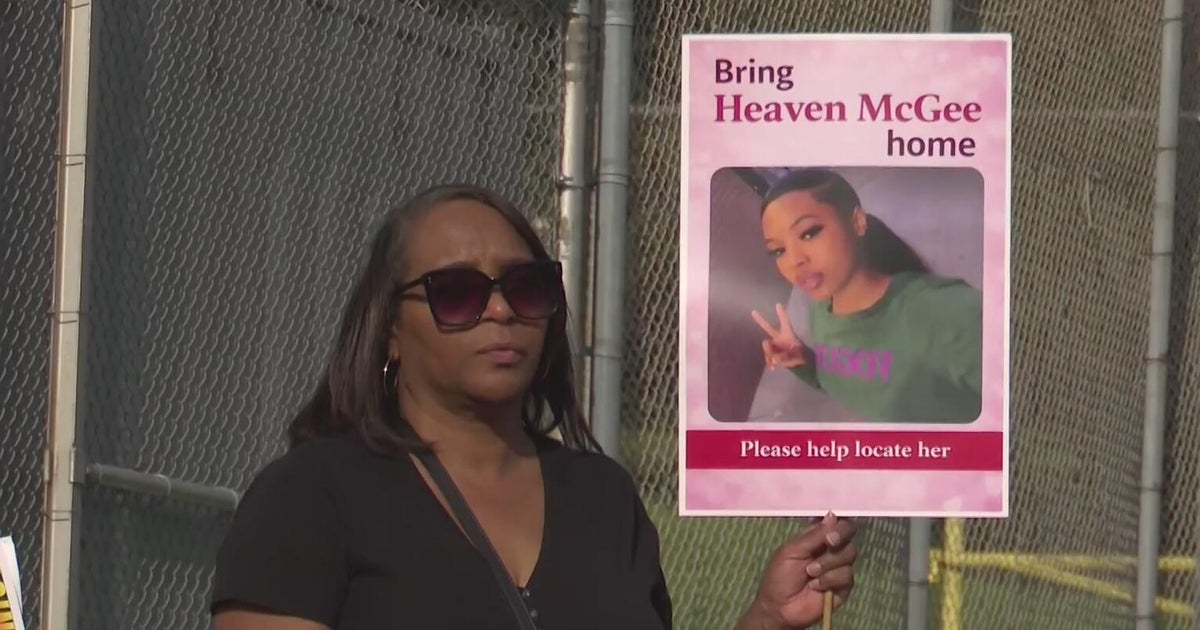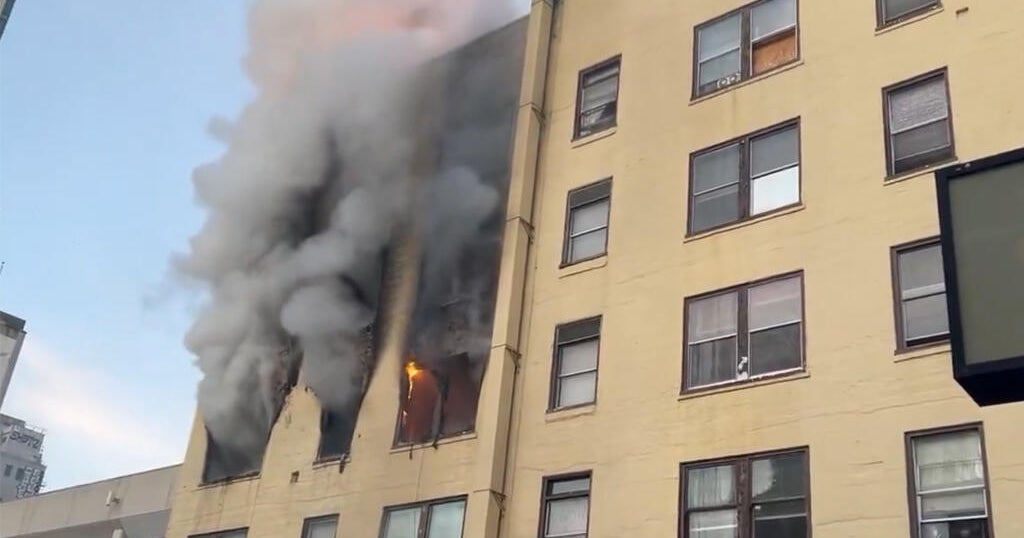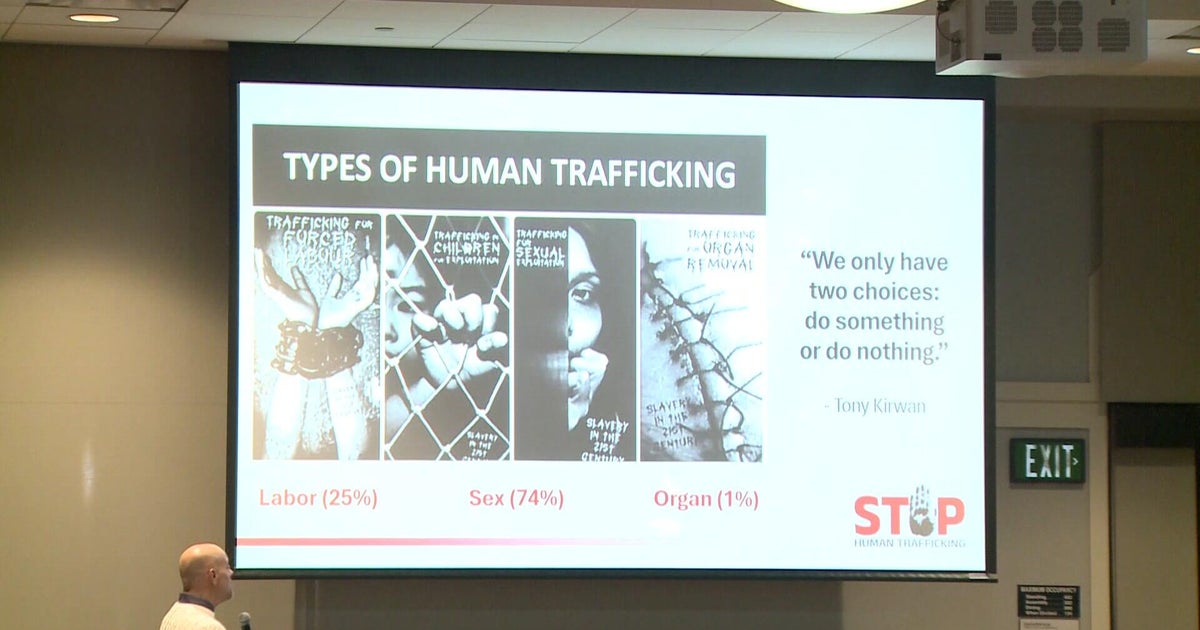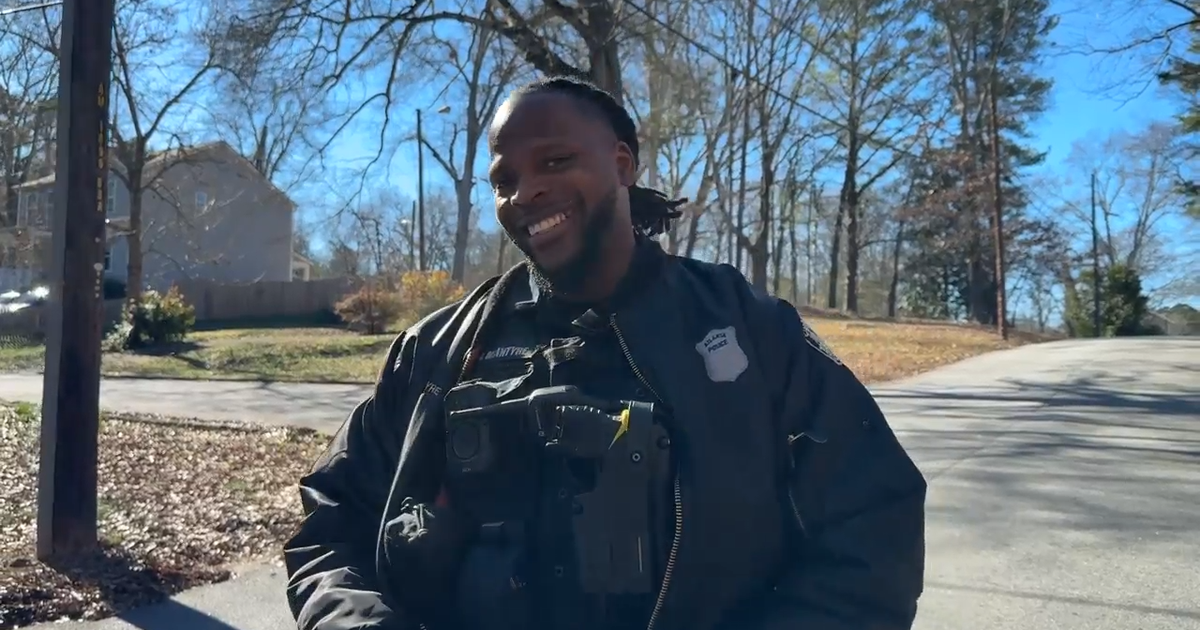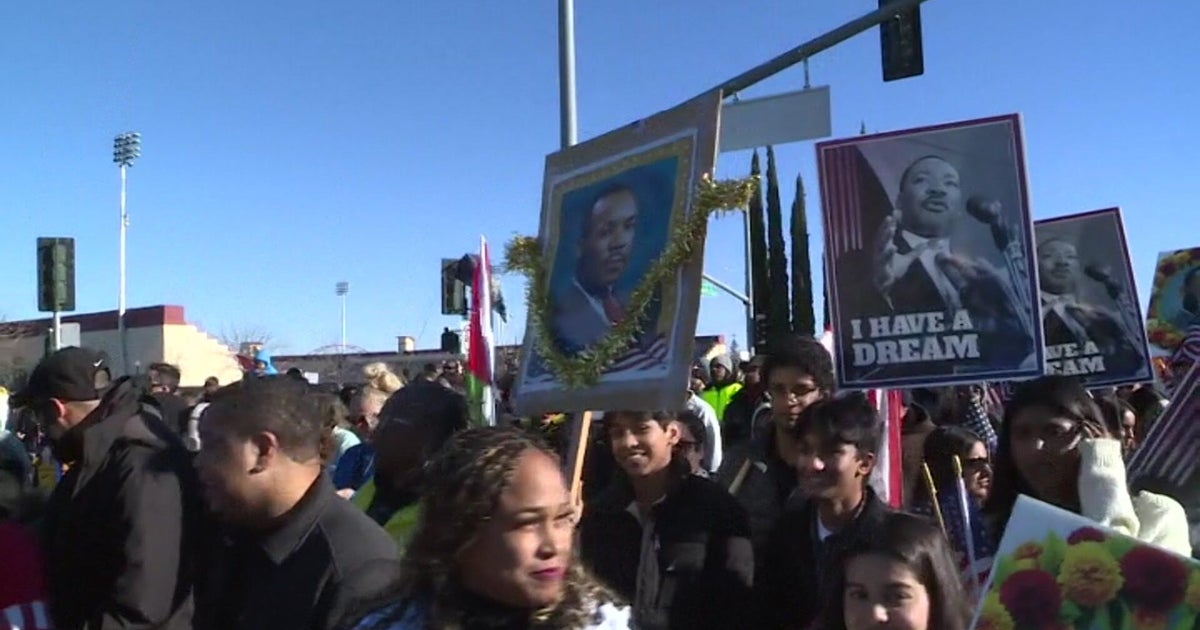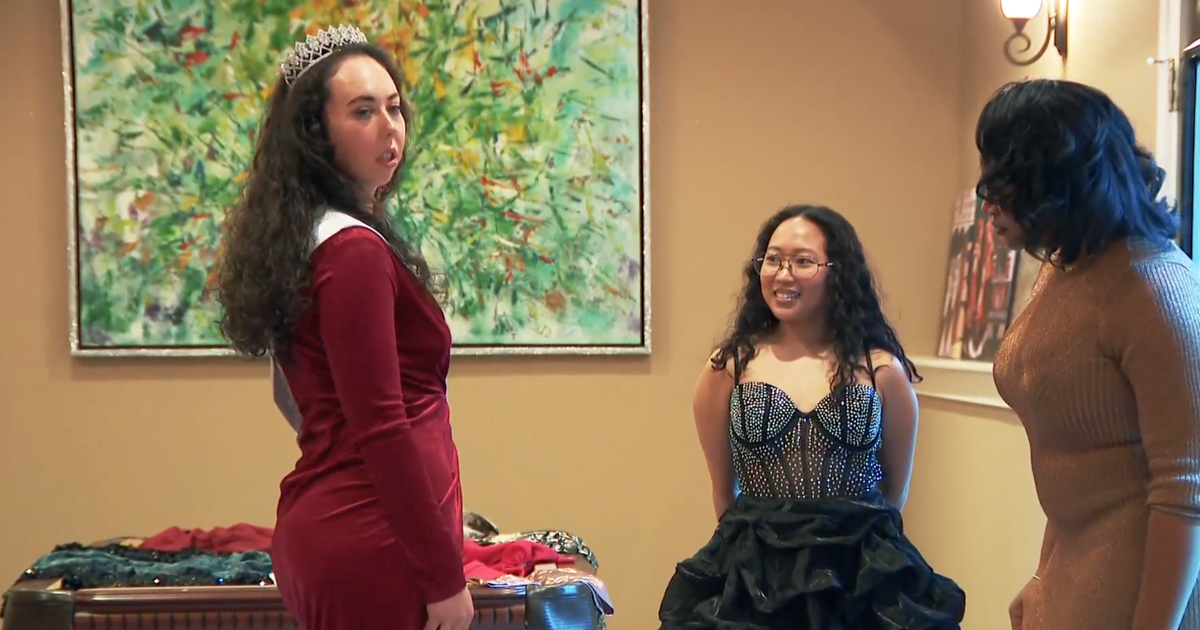Oakland Residents Rally To Fight Prostitution On International Blvd.
OAKLAND (CBS SF) - Residents of two neighborhoods along Oakland's International Boulevard held a rally Thursday night to fight back against the pimping and prostitution—particularly of young girls—that has plagued their streets for years.
Members of the San Antonio and East Lake communities shut down 17th Avenue between International Boulevard and East 15th Street for a "Safe Streets, Safe Kids" rally.
Jody Terrazas, who was organizing Thursday night's rally, said prostitution levels in the area have fluctuated in the 40 years she and her husband have lived in the neighborhood, but the sex trade is now in full view on the streets.
KCBS' Chris Filippi Reports:
"There are turf wars between pimps where children walk to school or to activities at a local youth center," she said. "It's very hard for our children to see this activity on the street when there are little girls their age and sometimes younger that are slaves of these pimps."
Hundreds of residents, merchants and public officials, including Police Chief Anthony Batts and Mayor Jean Quan attended the rally.
On a recent rainy afternoon on Oakland's infamous "Track," a stretch of International Boulevard known for prostitution, the street was mostly empty except for groups of men huddled together in front of taco trucks and young women loitering at bus stops or walking slowly down the sidewalks.
The girls eyed the cars as they drove by—a sure sign they were working as prostitutes, said Officer Hamann Nguyen with the Oakland Police Department's vice and child exploitation unit.
Nguyen pointed to a young girl in black skinny jeans and a T-shirt who was shivering behind a bus-stop bench at 29th Street. Another girl walked by several streets down, trying to make eye contact with drivers.
Their pimps were somewhere nearby, Nguyen said, counting how many tricks the girls turned and calculating how much money would be coming in later.
Nearly all the prostitutes in Oakland are controlled by pimps, according to Officer Holly Joshi, who spent three years with the vice unit and now works as the Police Department's spokeswoman.
The pimps control their girls through a combination of emotional manipulation and physical and psychological abuse, and they prey on the many at-risk teens who come from broken homes in Oakland or run away there from other cities, Joshi said.
"They're the most manipulative criminals I've ever come in contact with," she added.
The pimps warn the girls about nearby patrol cars and swoop in occasionally to collect the girls' earnings, but for the most part they're out of sight and out of danger, Joshi said.
She said pimps' operating costs are minimal: a cheap motel room and a few fast-food meals per day for the girls. A pimp with five or six girls working seven days a week can earn $600,000 per year in untaxed income, Joshi said.
Experts agree that the low-risk, high-reward business model has led to an explosion in vice-related crimes in the Bay Area in recent years, and children are increasingly the pimps' targets.
The pimping of minors is a form of human trafficking under both state and federal law. Minors cannot legally consent to have sex in the U.S., let alone consent to sell it, as Joshi pointed out.
Terrazas said Thursday night's rally targeted the National Lodge motel at 1711 International Blvd., which is one of three businesses being sued by the city for allegedly allowing prostitution on site.
The city is trying to shut down the motel under the state's Red Light Abatement Act, which permits cities to sue nuisance establishments and collect civil penalties.
According to Officer Nguyen, an undercover officer can drive into the National Lodge parking lot, park his car and honk his horn, and girls will come out of the rooms to offer him services.
Police have made at least 10 prostitution arrests at the corner of 17th Avenue and International Boulevard since Dec. 31, according to the Oakland police Crimewatch program.
National Lodge owner and manager Mike Patel, however, said his motel is not to blame.
He acknowledged that prostitution is a problem in the area but said he has no control over what happens on the streets.
"When I see (prostitutes) in the hotel, I kick them out," he said.
"But I see her outside and I can do nothing."
He said that sometimes men who are not registered at the motel bring girls to its rooms, and that he reports suspected prostitution to police.
City Attorney John Russo's suit against the motel alleges that the National Lodge has been used for prostitution at least since 2004, and that multiple arrests were made on motel property in 2009 and 2010.
"The National Lodge is a place known to be used by prostitutes for the temporary rental of rooms for that exact purpose," the complaint states.
Terrazas said she would welcome the motel's closure.
She and her husband raised two daughters, now 32 and 33 years old, in the neighborhood, and like many local parents they kept the girls cloistered so they wouldn't be approached by pimps or johns. Parents with sons also worry the boys will be influenced by the sex trade, either by getting involved or being caught in the crossfire.
Local children are implicitly told prostitution is OK in their neighborhood and just a way of life in Oakland, Terrazas said.
She was scheduled to speak at Thurday night's rally about her experiences, which include seeing a pimp and a prostitute shot while sitting in a car near 18th Avenue.
"The young lady's pimp opened the door, kicked the shot girl onto the street, and then drove away," presumably to the hospital, she said.
Another neighbor was threatened when she tried to take a cell phone photo of a pimp's license plate in front of her home.
"He said the next time he saw her walk out that front door he would kill her," Terrazas said.
She said Thursday's rally marks the first time the neighborhood has come together as a group instead of acting as individuals.
"I'm very, very hopeful," she said.
(Copyright 2011 by CBS San Francisco. All Rights Reserved. This material may not be published, broadcast, rewritten, or redistributed. Wire services may have contributed to this report.)
